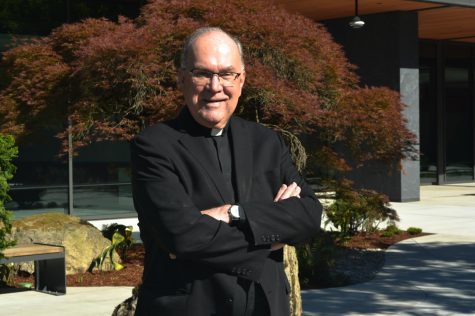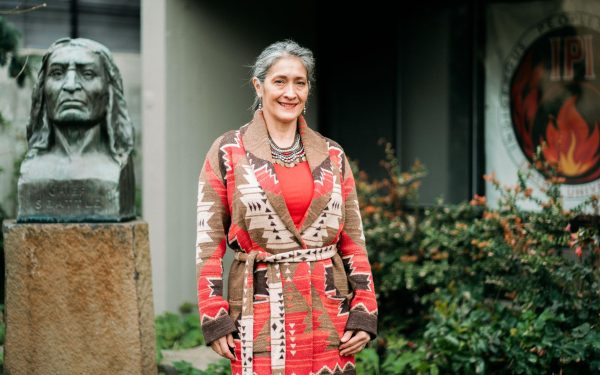Seattle U Reflects on Snow Days in the World of Zoom
With all the changes that have come in conducting school primarily online, the recent snow storm in Seattle made many wonder if snow days would still exist, given the new widespread student and professor familiarity with online learning strategies. While Seattle University canceled in-person classes Feb. 13 and 14, virtual classes took place as scheduled.
Given the COVID-19 pandemic, online learning has grown across the nation as students were not allowed to meet in person in order to reduce the spread of the virus. Now, as more people receive vaccines and the number of COVID-19 cases decline, people start to wonder how this newly familiar technology will play a role once schools are able to safely have classes in person again.
The Director of the Center for Digital Learning and Innovation (CDLI) and the Dean of the School of New and Continuing Students (NCS), Rick Fehrenbacher, explained that the CDLI helps maintain academic technologies for teaching online and trains faculty to effectively deliver courses online. Since going online Spring 2020, Fehrenbacher shared his perspective on students’ experience with online learning
“I think in particular what we’re learning from the graduate programs is that there are some students that just like online learning,” Fehrenbacher said. “Most of them are working professionals, so coming to campus can be difficult. Some of them want even more classes to be delivered in an online fashion, both asynchronous and synchronous. Some of our undergraduates seem to be interested in it as well.”
Due to the positive responses from students, Fehrenbacher suggests that Seattle U may continue offering online classes to give more flexibility in students’ schedules.
“It seems to help students negotiate their lives better. Given student demand, we will probably offer more of those programs, especially at the graduate level,” Fehrenbacher added.
As students and faculty have been using digital based education over the past year, some recognize that this could signal the disappearance of snow days entirely. Not having snow days means students and faculty do not fall behind academically, but it could also mean students are missing out on outdoor experiences and mental breaks from classes.
Second-year business economics student, Lance Mason, explained how much he enjoys snow days and how useful these days off are for students.
“I think it is a real shame that snow days could potentially not happen because of Zoom. I have had some wonderful experiences on snow days, and to think that myself and others cannot fully enjoy the snow anymore because of something like Zoom is very disappointing,” Mason said. “I think a snow day could help by allowing students to hit the pause button on their primary lifestyle as a student and take the time to relax and reflect.”
Second-year business pre-major Jay Grant also shared his feelings about snow days potentially ending.
“I feel disappointed at the thought of snow days disappearing because of access to online education,” Grant said. “Snow days were some of my favorite days as a child… and would always provide a great break from school and allow time to catch up and have fun in the snow at the same time.”
While students and faculty become accustomed to online learning, Seattle U, along with other universities, hope to eventually return to in-person classes. However, this does not mean online education will be completely abandoned. Seattle U Provost Shane Martin commented on how he thinks Seattle U will operate when in-person classes can safely happen.
“I believe there will be targeted programs and courses that will be virtual, particularly at the graduate education level. Our primary approach at the undergraduate level is to deliver a high-touch, personalized student experience. The in-person experience will still be the predominant one at Seattle University,” Martin said.
Professors may continue to offer office hours virtually or offer supplemental classes online. Even when all face-to-face classes are deemed safe and permissible, faculty now have the means to move classes online for a day or two for inclement weather concerns. Martin shared how professors would be able to adjust classes to online due to weather when necessary.
“In most cases, professors will be able to offer their classes virtually. Some specialized clinical-based and laboratory-based courses might need to consider other solutions,” Martin said.
Fehrenbacher thinks Seattle U will continue to offer asynchronous classes, or at least incorporate more virtual communication, when learning face-to-face again. While this could mean snow days may disappear entirely, students hold onto hope of snow days as a way to reduce Zoom fatigue and allow time to create memories they will look back on.











